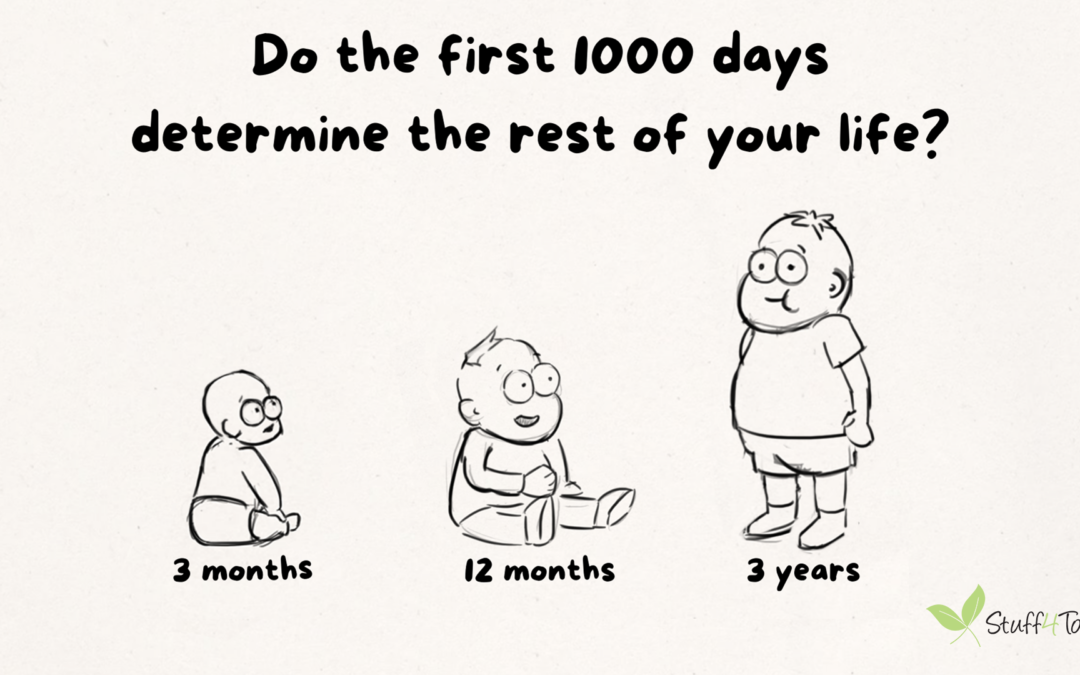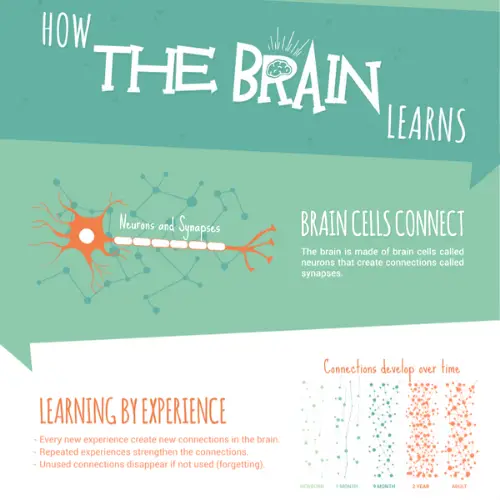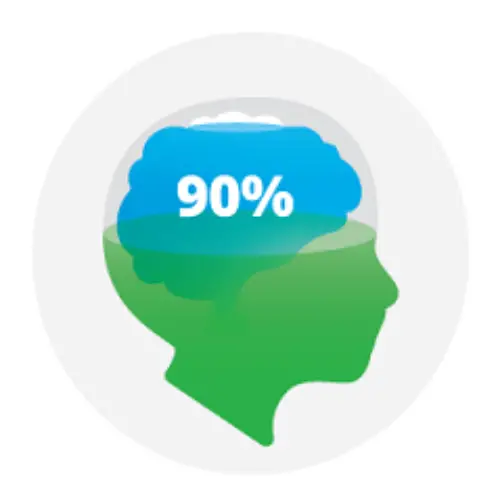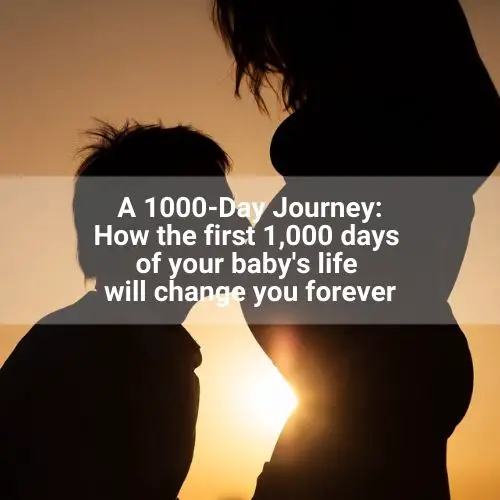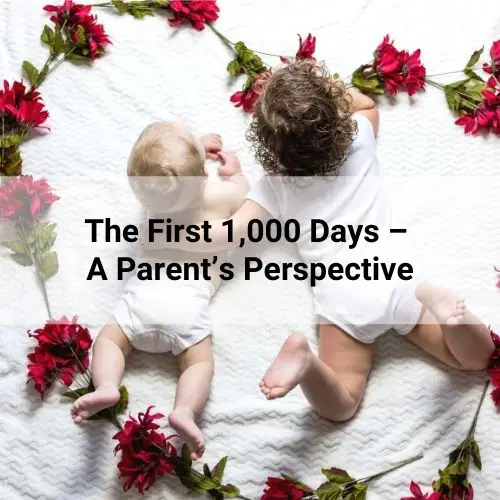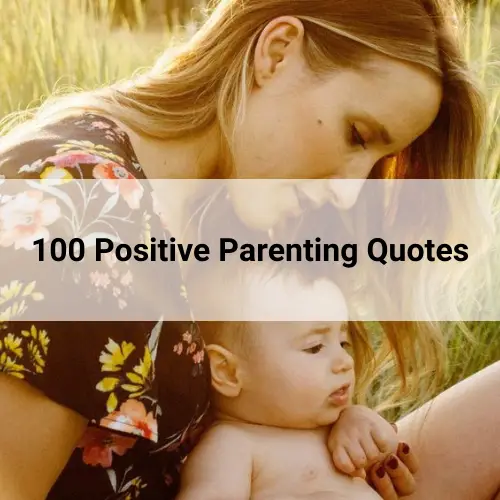If you and a friend had a friendly wager over a short foot race, would you be okay giving them a head start? Probably not. However, they would take it if you did because it increases their chances of winning.
A good start in life is equally important. The better off you are in the very beginning, the greater your chances of success later on.
Table of Contents
The science
And I’m not simply being motivational here, this is backed by science and statistics. The first 1000 days of your child’s life, from conception to the age of two, will have a profound impact on the rest of their existence.
In the video below, Dr. DeeDee Yates speaks about this topic in detail during her TedX talk in Namibia.
If you’re reading this and your child is still in the womb or under 24 months old, get a pen and jot this stuff down because it’s very important in terms of giving your baby the best possible chance at success later on.
If your child is older and you realize that maybe you didn’t do as much of this as you think you should have, don’t panic. I’ll share some hopeful things related to that at the end. For now, let’s look at some facts about early development.
Brain development
Many aspects of brain development peak well before a child is 4 years old.
Check out this handy chart by Adam & Mila. You’ll see how the various emotional, social, and language skills peak in our earliest years.
I don’t mean that children stop developing after that, but these are times when the brain is most sensitive to learning these skills. Essentially, if your child were a building, these are the optimal times to lay a good foundation.
Hearing, sight, and language all develop before children enter school.
If your child is looking, listening, and speaking, they’re also learning. Read to them. New studies involving brain scans show that reading to your children can help them understand language better.
And it’s not just what you do with them, but how you behave. Your children are watching everything you do and learning from it. They watch how you handle things, how you react to stress, how you display or control your emotions, and storing it all away in their little heads.
Check out available musical toy for babies here.
They’re also developing their peer and emotional skills.
My wife relayed a heart-breaking tidbit of information to me the other day about orphanages in poorer countries. Visitors are often surprised at how quiet the babies are. Because they’re overcrowded and underfunded, the infants don’t cry. They’ve learned not to.
Babies cry because they quickly discover that someone will come and tend to their needs if they do, but if no one comes, there’s no point crying.
Tears for that aside, making time for your children to play with others will give them a big advantage socially when they enter school.
Children aren’t born knowing how to share, get along, or resolve conflicts. They rely on adults to teach them those things, and the easiest and safest way to do that is while they’re still under your roof.
Neurons
Connections between neurons are established in the first year and come from a caring and stimulating environment. Source.
Well, there you go. It’s hard to say it more plainly than that. Your baby spends most of its first year as an adorable blob. Sure, close to the end they’ll start talking and could even be walking, but even while they’re just eating and smiling at you, they are developing.
Neuron connections develop through experiences, and positive experiences are by far the best for healthy development. When babies coo and babble, they’re literally trying to interact with you to gain those positive experiences.
So talk with your baby, read to them, sing, play, and dance. You won’t regret it, and neither will they.
Now let’s get on to the importance of nutrition.
Nutrition
Sixty percent of your baby’s metabolic energy (the body using the nutrients it consumes) goes toward brain development. The adult brain only uses 20% of a person’s metabolic energy. Source.
If that’s not an eye opener, I don’t know what is. Seriously, more than half of what the baby eats goes to developing the brain, so is your little one getting the right nutrition?
We live in an age with a wealth of health knowledge. Most adults know what foods are good or bad for them, even if they don’t always make health-conscious choices.
Good nutrition for our younglings is equally as important. I don’t feel I should have to say why, but I will for the sake of driving home this very important point.
Poor nutrition habits can have a variety of negative health consequences including: stunted growth, delayed puberty, poor academic performance, increased rates of injury, and poor bone health. Source.
Mental stimulation
Studies show that children with poor nutrition, lack of stimulation, excessive exposure to violence or stress will finish fewer grades in school, earn less, and will have poor health as opposed to their well-nourished peers. Source.
Logically, we should all have arrived at this point by now.
Poor nutrition, lack of stimulation, and excess stress will obviously have a negative impact on your child, as it would anyone.
The key factor is, again, those oh-so important early developmental years. It might be harder to come by good nutrition if you’re on the lower end of the wealth spectrum, but mental stimulation costs nothing.
Talking with your baby every day, playing peekaboo, having tickle-fights, telling stories, singing—all of that’s free.
Go to the library and borrow some books to read to them, or read them some of your favorites. I personally love reading my children the books I loved as a kid. In the evenings, they play with LEGOs on the floor and I read. They love it, and they’re learning.
Click here to view available kids book set on Amazon.
Even if you don’t have access to things like that, you can teach them what you know. Go for a walk and point out the clouds and trees. Name birds, street signs, buildings, and anything else you can think of.
Have fun doing it, make sure your child knows you enjoy spending time with them. It’s that positive, caring interaction that really promotes healthy development.
Stress avoidance
If there’s a lot of stress or violence in the environment your child is growing up in, it might be best for you to remove them from that environment.
Also, make sure they’re not watching anything too violent on television. Artificial stress is still stress, and the body doesn’t know the difference between what is imagined and what’s real. Source.
So if your baby is still in utero or under the age of two, start putting all this into practice now! If they’re a little older, and maybe you didn’t have all this information back then or didn’t do things the way you think you should have, don’t lose heart!
A good start
A good start will give your child a great advantage, but if your child didn’t have a great start, or maybe you adopted one that didn’t come from a great background, there’s nothing that proves they won’t grow into an exceptional human being one day.
Dr. Caroline Leaf is a communication pathologist and cognitive neuroscientist. She was one of the first in her field to study how the brain can change with directed mind input (neuroplasticity).
In her books, she more than proves that even those of us that didn’t have the best beginnings or who suffer from traumatic brain injuries or Attention Deficit Hyperactivity Disorder (ADHD) or any number of other debilitating mental conditions, can overcome through intentional, positive thinking and actions. Check her out, here.
Positive influence
Much like in that oh-so important first thousand days, positive influence is the key to undoing a less than ideal beginning.
As a mother, father or guardian, you can lead your child into healthy thought-habits by displaying them yourself.
Formulate and express positive attitudes and approaches when dealing with everyday problems. Exhibit qualities like gratefulness, which studies have shown consistently leads to greater peace of mind and happiness.
Acknowledge negatives so your child will learn what they are and how to process them, your reaction to these things will also be a big teaching tool.
If your child sees your reinforcing toxic behaviors or thought patterns, they are likely to emulate that at some point.
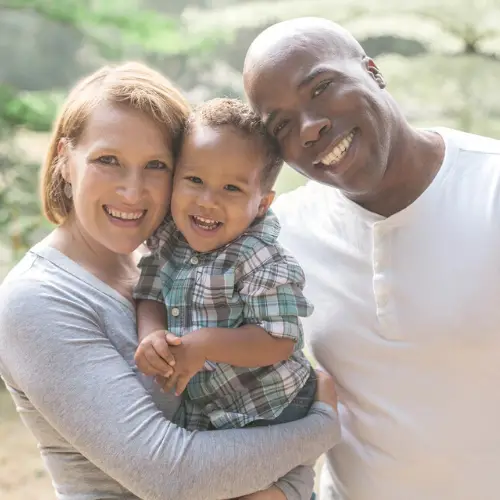
Teach your child to practice mindfulness at a young age, being aware of unhealthy patterns of thought that create stress and anxiety.
Much like how exercising our muscles repeatedly makes them stronger, entertaining the same thought patterns reinforces the pathways and connections in the brain related to those thoughts, making them much easier to entertain again.
Basically, if you think about bad things regularly, it’ll be easier for your mind to go straight to the bad when something new happens, and vice versa. Some people have even claimed mindfulness can cure things like anxiety and depression.
In summation, if you’re reading this with a baby on the way, or one still at home, do everything you can to give them the best possible chance at life.
Make sure they have a good diet, plenty of interaction with you, plenty of love, mental stimulation, and as little stress as possible during their formative years. If they’re a little older, don’t worry, because success stories come in all shapes and sizes.
And the bigger the underdog, the better the story.
Related Articles:

Adam MacDaniels
A dad of two little girls plus he's a trained Paramedic and a Firefighter. Is there anything that Adam MacDaniels can't do??
